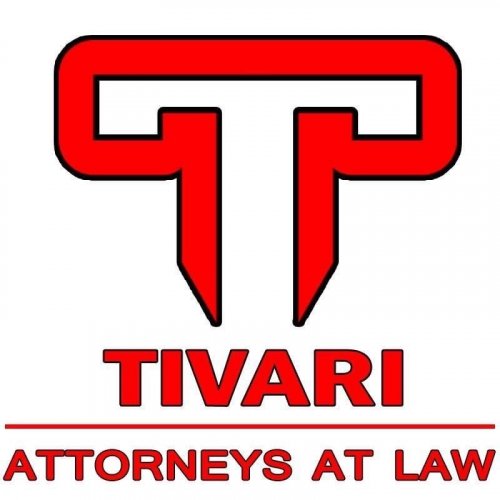Best Hiring & Firing Lawyers in Durrës
Share your needs with us, get contacted by law firms.
Free. Takes 2 min.
List of the best lawyers in Durrës, Albania
About Hiring & Firing Law in Durrës, Albania
Hiring and firing practices in Durrës, Albania, are governed by both national Albanian labor laws and local practices. Employers and employees must adhere to regulations stipulated in the Labor Code of Albania. This code outlines fair hiring practices, contracts of employment, and the conditions under which an employee can be dismissed. As a major port city and economic hub, Durrës has a diverse workforce, and businesses must navigate both the legal requirements and cultural expectations when it comes to employment matters.
Why You May Need a Lawyer
There are several common situations where businesses or individuals might need legal advice regarding hiring and firing in Durrës, Albania:
- If you’re an employer setting up a new business, understanding local hiring practices and legal obligations is crucial.
- When crafting employment contracts, a lawyer can ensure compliance with national and local regulations.
- In cases of employee termination, legal guidance can prevent wrongful dismissal claims.
- Navigating disputes related to workplace harassment or discrimination may require legal intervention.
- Understanding labor rights and obligations under collective bargaining agreements, if applicable.
Local Laws Overview
The Labor Code of Albania is the primary legal framework governing employment practices in Durrës. Key aspects include:
- Employment Contracts: Must be in writing and include terms such as job description, salary, working hours, and duration.
- Working Hours: Standard working hours are capped at 40 hours per week, with provisions for overtime pay.
- Termination Procedures: Employers must have legitimate reasons for termination and provide notice in accordance with the contract terms.
- Employee Rights: Include anti-discrimination protections, workers' compensation, and maternity leave.
- Dispute Resolution: Involves mediation or court proceedings if amicable solutions are not reached.
Frequently Asked Questions
What are the essential elements of an employment contract in Durrës?
An employment contract should include the job title and description, compensation details, work hours, and the duration of the agreement. It must also outline both parties' rights and responsibilities.
Is there a probationary period for new employees?
Yes, employment contracts may include a probationary period, usually up to three months, during which either party can terminate the contract with minimal notice.
How do I legally terminate an employee?
Termination must be based on valid reasons such as job redundancy, misconduct, or incapacity, and follow the notice period outlined in the contract.
What are the grounds for wrongful dismissal claims?
Wrongful dismissal claims may arise if termination is discriminatory, breaches contractual terms, or is without proper notice.
Are there specific laws about hiring foreign workers?
Foreign workers must obtain work permits, and employers should ensure compliance with all immigration and labor laws when hiring them.
How is discrimination handled in the workplace?
Discrimination on the basis of race, gender, religion, or ethnicity is prohibited, and affected employees can file complaints with the appropriate labor authorities or the courts.
What are the rules regarding overtime work?
Overtime is permissible but should be compensated at a premium rate. It generally requires mutual consent between the employer and employee.
What should I do if there’s a workplace dispute?
Workplace disputes should ideally be resolved through mediation or arbitration. If unresolved, legal proceedings might be necessary.
Do collective bargaining agreements affect hiring and firing?
If a workplace is covered by a collective bargaining agreement, its terms may supersede standard contract provisions in areas such as job security or termination.
Where can I report labor law violations?
Labor law violations can be reported to the Labor Inspectorate or relevant government bodies in Durrës, which enforce compliance with employment laws.
Additional Resources
For more information, consider the following resources:
- Ministry of Finance and Economy: Provides guidelines on labor laws and employment standards.
- Labor Inspectorate in Durrës: Offers enforcement of labor laws and handles workplace complaints.
- Chamber of Commerce and Industry of Durrës: Supports businesses with legal advisory services.
Next Steps
If you need legal assistance with hiring and firing in Durrës, the following steps can guide you:
- Consult a Legal Professional: Reach out to a lawyer specializing in labor law to gain personalized advice for your situation.
- Document Everything: Keep detailed records of all employment contracts, communications, and related documents.
- Stay Informed: Regularly update yourself on any changes in Albanian labor laws that may affect your rights or obligations.
- File Complaints Promptly: If facing issues, report them in a timely manner to relevant authorities to avoid forfeiting legal rights.
Lawzana helps you find the best lawyers and law firms in Durrës through a curated and pre-screened list of qualified legal professionals. Our platform offers rankings and detailed profiles of attorneys and law firms, allowing you to compare based on practice areas, including Hiring & Firing, experience, and client feedback.
Each profile includes a description of the firm's areas of practice, client reviews, team members and partners, year of establishment, spoken languages, office locations, contact information, social media presence, and any published articles or resources. Most firms on our platform speak English and are experienced in both local and international legal matters.
Get a quote from top-rated law firms in Durrës, Albania — quickly, securely, and without unnecessary hassle.
Disclaimer:
The information provided on this page is for general informational purposes only and does not constitute legal advice. While we strive to ensure the accuracy and relevance of the content, legal information may change over time, and interpretations of the law can vary. You should always consult with a qualified legal professional for advice specific to your situation.
We disclaim all liability for actions taken or not taken based on the content of this page. If you believe any information is incorrect or outdated, please contact us, and we will review and update it where appropriate.








